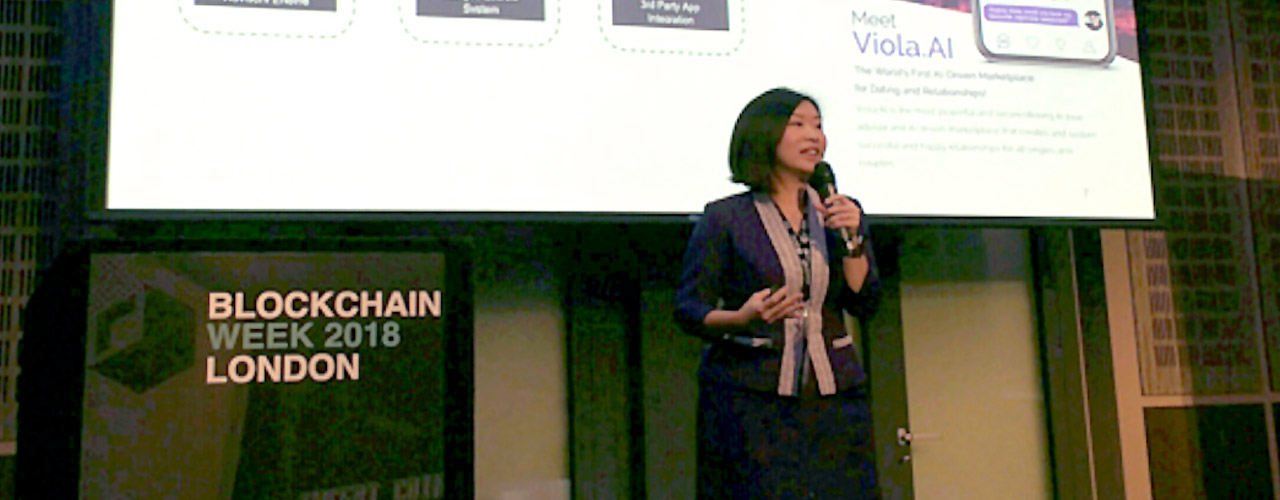
London Blockchain Week 2018: Identifying Blockchain’s Value and Its Applications Across Industries

KEY POINTS
On January 22, the FGRT team attended London Blockchain Week 2018, an event that includes a hackathon, an exhibition and workshops. We attended the conference on the day that a number of exhibitors gave presentations.
- Companies presenting at the event described how blockchain technology can be used across a range of applications, from dating sites to arts and collectible markets to employment history registers.
- The technology can also be used to connect data providers and users through data marketplaces.
On January 22, the FGRT team attended London Blockchain Week 2018, a conference and exhibition dedicated to blockchain technology and its application in industries that include e-commerce, logistics, finance and banking. The weeklong event runs January 19–26 in London and includes a hackathon competition, an exhibition and workshops.
We attended exhibits and presentations by the following companies:
- Gimmer: CEO and Cofounder Philipe Comini described how Gimmer uses artificial intelligence (AI) to provide an automated trading platform for cryptocurrencies.
- Viola.ai: Violet Lim, CEO and Cofounder of Viola.ai, introduced her company’s AI-powered dating site, which aims to prevent online dating scams by tracking and verifying users’ accounts using blockchain technology.
- Codex Protocol: Founder and CEO Mark Lurie said that Codex Protocol aims to tap into the $2 trillion arts and collectibles market by introducing a decentralized registry that increases the traceability of art pieces.
- Lendingblock: Linda Wang, Cofounder and CPO, illustrated Lendingblock’s open-exchange platform, which puts borrowers and lenders of cryptocurrencies in contact with each other.
- IDbox: Julien Bouteloup, IDbox’s founder, showcased the company’s hardware, which helps low-income people in developing nations create a digital identity on the blockchain that they can use to register for and access services such as healthcare, banking and education.
- R_Block: Cofounder Luke Shipley described R_Block as a blockchain-based database that tracks employment and performance history for HR and hiring.
- ULedger: Founder and CEO Josh McIver showed how ULedger can help firms use blockchain technology for data certification.
- Developeo: Founder and CEO Aytunc Ozturk introduced Developeo, a platform people can use to learn to code AI programs and develop open-source AI applications.
- CharityStars: Cofounder and CEO Francesco Nazari Fusetti introduced the company’s platform, which increases transparency in charitable giving by enabling donors to track donations on the blockchain.
- All Public Art: Graham Goddard, All Public Art’s CEO, illustrated his firm’s blockchain platform, which connects artists and art collectors and prevents fraud and market manipulation in art trading.
- FintruX: Conrad Lin, Cofounder and CMO of FintruX, introduced the company’s blockchain-based peer-to-peer platform, which connects small businesses with lenders for company financing.
In addition to the above presentations, we attended talks by three other presenters during our day at London Blockchain Week:
- In the first session, Adi Ben-Ari, Cofounder and CEO at blockchain development service Applied Blockchain, listed the key properties of the blockchain—distribution, immutability and visibility—and noted how companies are applying the technology across industries, from supply chain management to e-commerce.
- Later, Luis Carranza, Founder at blockchain firm Xensus.io, presented on blockchain and data, and showed how his company connects data providers and users through a blockchain data marketplace. The data being transacted is generated by devices such as smartphones, smart televisions and automobiles.
- Finally, Ian Dowson, Principal at consulting firm William Garrity Associates, gave an overview of the fintech sector, showing how fintech investments in the US grew from $4.2 billion in 2013 to $9.7 billion in 2017. Dowson said that payments comprise the largest segment in fintech, accounting for $7.4 billion worth of investments globally in 2017.
